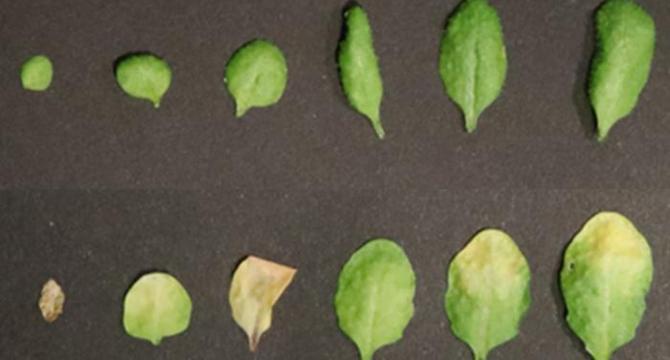Bioengineer
1w
272

Image Credit: Bioengineer
Scientists Discover New Factor Influencing Plant Leaf Aging
- A discovery from Osaka Metropolitan University reveals that a mutation enhancing disease resistance in Arabidopsis thaliana accelerates its leaf aging.
- The study focused on the ADF protein family and found mutant ADF plants exhibited earlier leaf senescence, notably in dark conditions.
- Leaf senescence involves chlorophyll degradation leading to yellowing and abscission, with mutant ADF plants displaying premature chlorosis.
- ADF proteins act as promoters of disease resistance and regulators of leaf aging, highlighting a delicate balance in plant survival strategies.
- These proteins modulate actin filaments, influencing immune responses and senescence pathways that impact leaf yellowing and cell death.
- Understanding ADF function could aid in breeding crop varieties with enhanced disease resistance and longevity, benefiting agriculture.
- The study elucidates resource allocation trade-offs in plants, where immune responses can expedite senescence via hormonal alterations.
- By studying ADFs in Arabidopsis thaliana, insights can be extrapolated to improve crop resilience and sustainability in agriculture.
- Mutant ADF mutations advancing disease resistance while accelerating leaf aging prompt further exploration into immune-senescence pathways.
- The research highlights the intricate roles of proteins like ACTIN DEPOLYMERIZING FACTORS in plant immunity, development, and aging processes.
Read Full Article
16 Likes
For uninterrupted reading, download the app